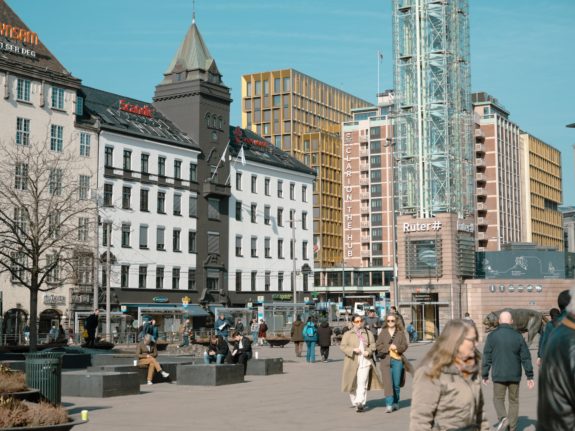Last year, just under 54,000 people immigrated to Norway, while 34,300 emigrated, figures from Statistics Norway have revealed.
Immigration into Norway increased in 2021 despite tight travel restrictions being in place for much of the year, making it harder for people to move to the Nordic country.
The last entry restrictions barring some travellers from entering weren’t lifted until November last year. Between January and May, stringent measures also meant that only residents and citizens were allowed to enter the country with a few small exceptions.
Citizens from the EU and European Economic Area made up around two-thirds of all people who moved to Norway.
Polish nationals made up the largest group to immigrate to and emigrate from Norway last year. The figures for immigration in 2021 are comparable to pre-pandemic years, according to Statistics Norway. The stats agency said that last year’s figures were similar to 2018.
READ MORE: How many people move to Norway for family reasons, and where do they come from?
Last year’s numbers even surpassed 2019, when less than 40,000 non-Nordic citizens relocated to Norway.
However, according to official figures, the pandemic had a massive effect on immigration in 2020.
In 2020, 24,400 immigrants made the move to the Scandinavian country. This was the lowest number of people moving to Norway since 2005.
The numbers from Statistics Norway stated that the pandemic and restrictions introduced as a result were a reason for the massive drop in immigration.
“The reduced immigration is mostly due to the coronavirus pandemic,” The report stated.
The report on 2021’s figures also said that the pandemic affected net migration in 2020 before activity increased again last year.
“In 2020, net immigration fell sharply due to the measures against the corona pandemic. In 2021, cross-border migration activity increased again, and thus also net immigration,” Statistics Norway’s latest report stated.



 Please whitelist us to continue reading.
Please whitelist us to continue reading.
Member comments